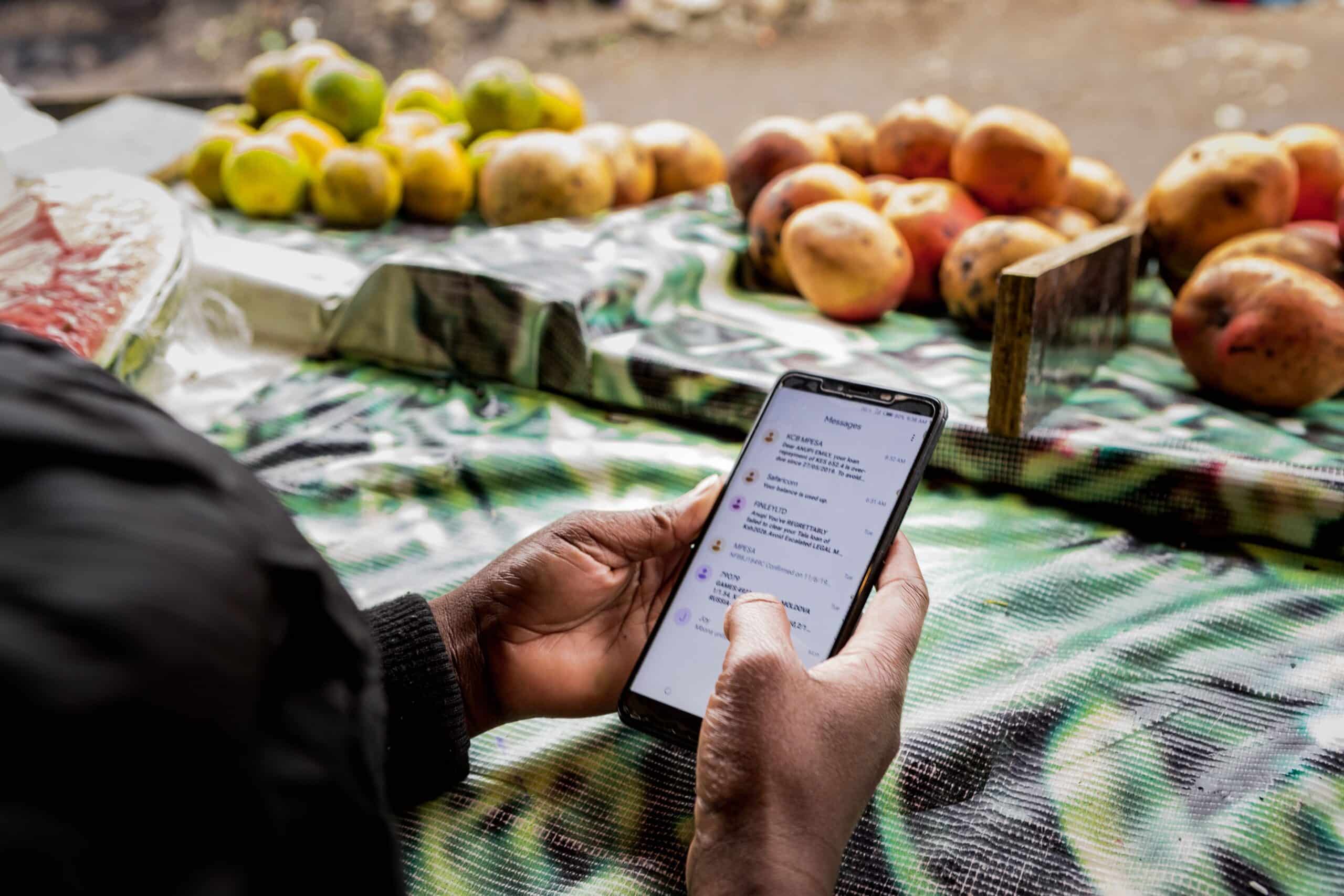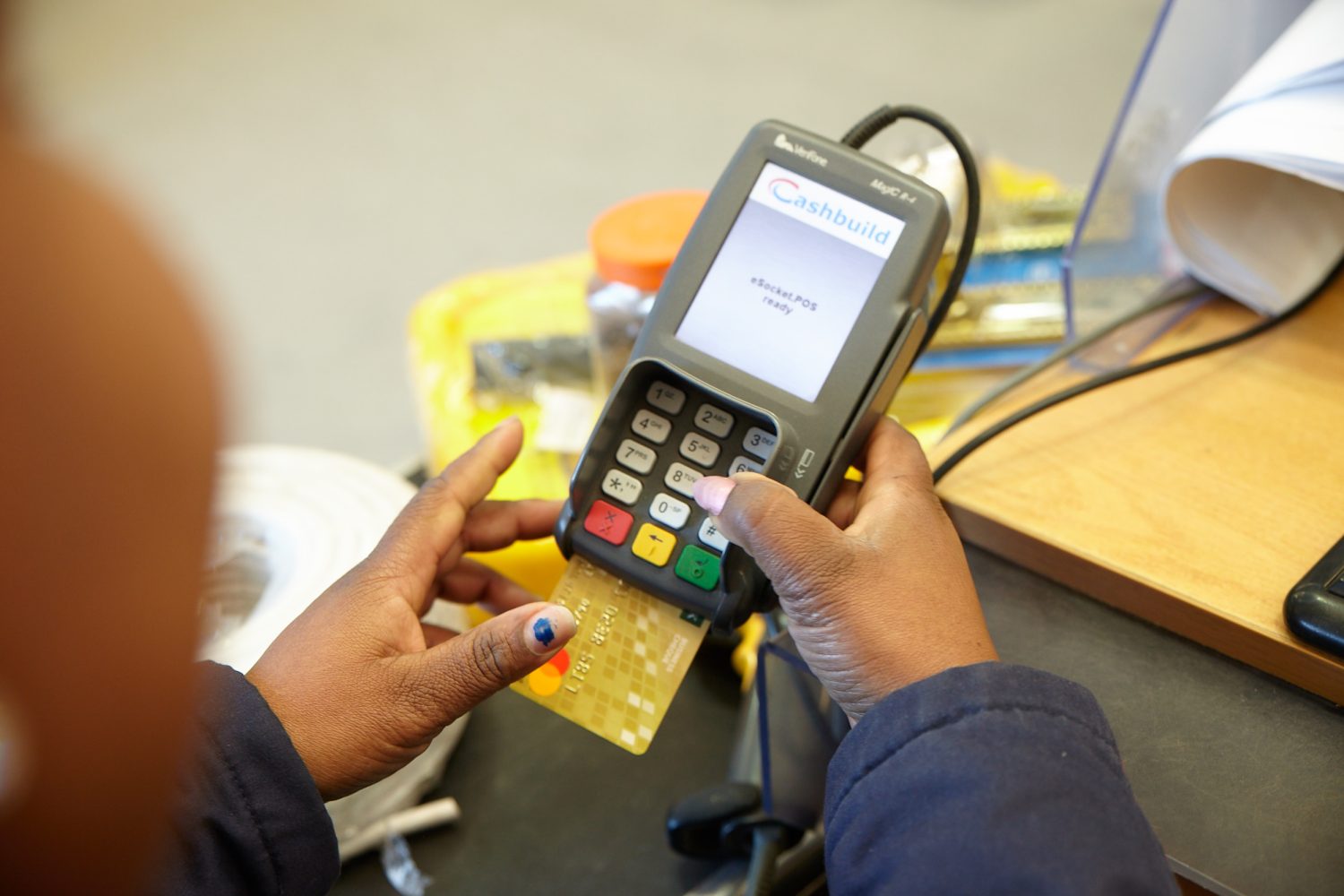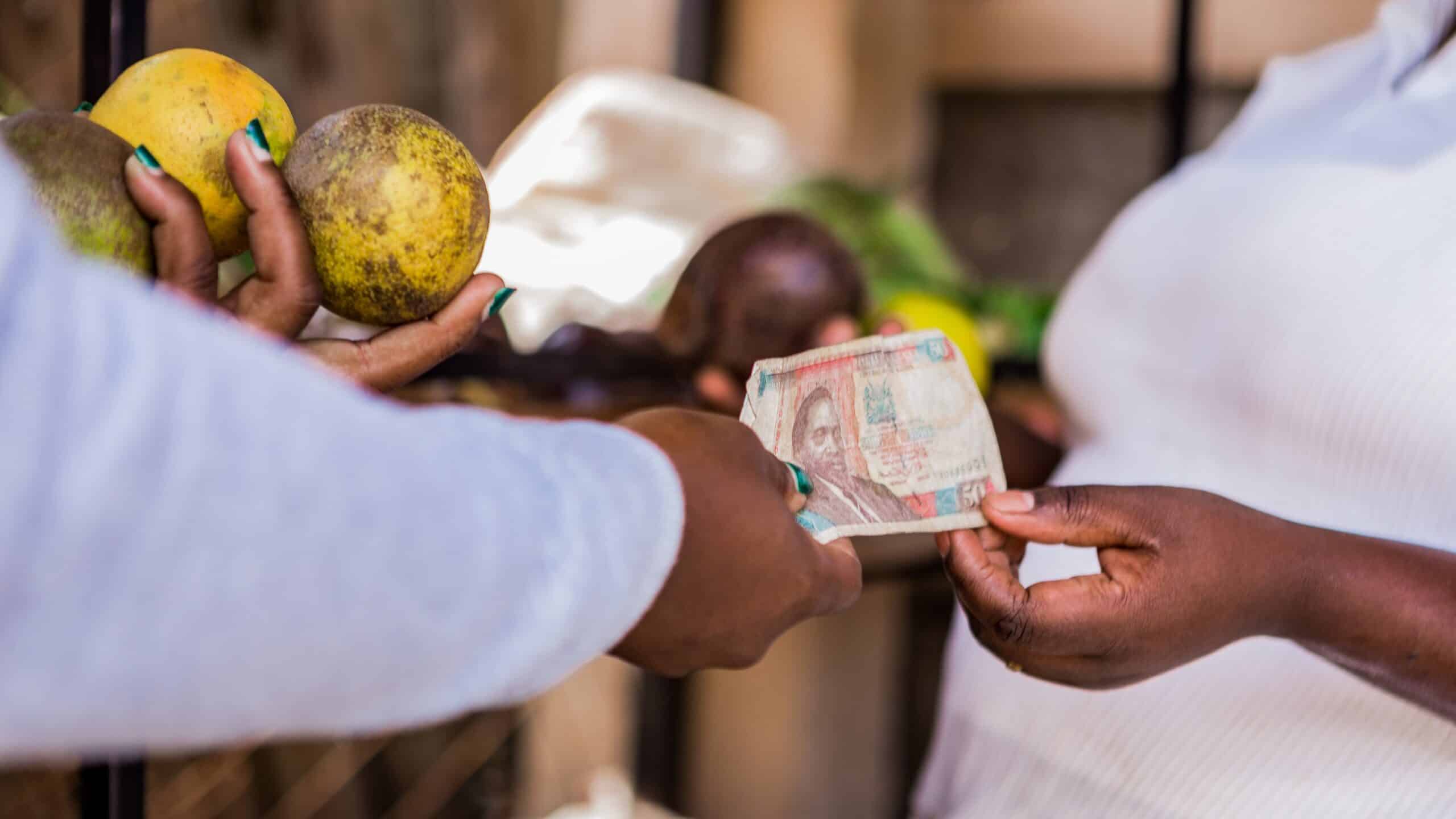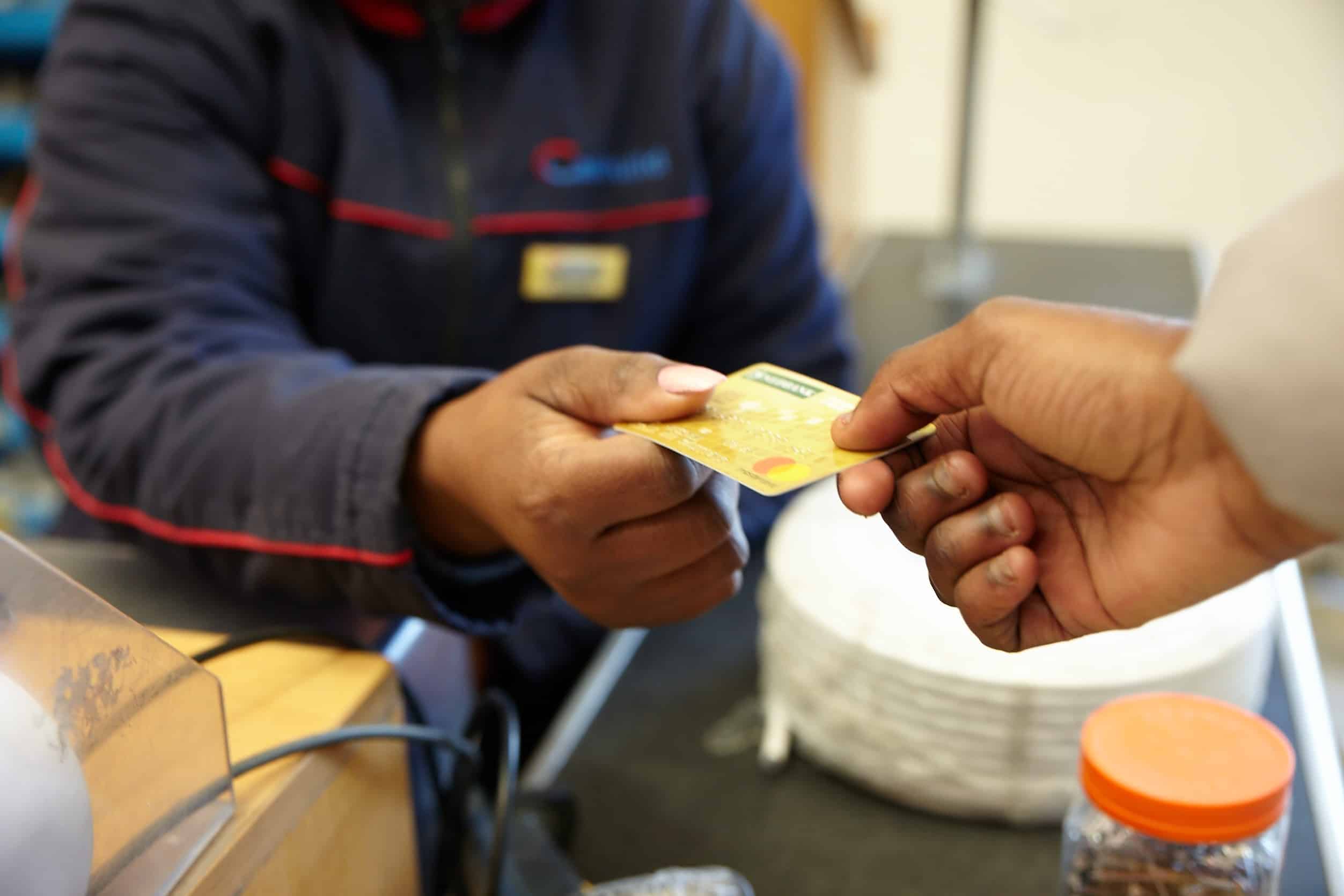
M-Shwari (meaning ‘calm’ in Kiswahili) is a combined savings and loans product launched through a collaboration between the Commercial Bank of Africa (CBA) and Safaricom. The M-Shwari account is issued by CBA but must be linked to an M-Pesa mobile money account provided by Safaricom. The only way to deposit into, or withdraw from, M-Shwari is via the M-Pesa wallet.
M-Shwari aims to deepen and diversify the consumption and income benefits of M-Pesa by providing clients with a facility to save and by offering credit beyond a user’s networks of family and friends. Surveys of M-Shwari users confirm that they mainly save and borrow to manage fluctuations in their cash flow and to cope with unexpected needs.
M-Shwari was launched in January 2013 and by the end of 2014 it boasted 9.2 million savings accounts (representing 7.2 million individual customers) and had disbursed 20.6 million in loans to 2.8 million borrowers. In 2013, only 19% of M-Shwari users were below the national poverty line; this had increa 30% by the end of 2014. It can be expected that the proportion of poorer users will grow over time, as usage amongst higher income groups approaches saturation.
The key point is that as a result of M-Shwari, millions of poor Kenyans now use savings and credit services that help them manage risks, mitigate the impact of shocks and, increasingly, invest in improving their livelihoods. M-Shwari was launched in November 2012, yet its scale means it has already changed the nature of the market, and is serving as a platform for the development of innovative new products.
FSD Kenya was instrumental in bringing M-shwari to the market in Kenya. It’s approach was one of using analysis to determine actions, in particular understanding the demand side of the financial sector – the ‘poor and the money’. FSD Kenya also encouraged a first principles approach to product development (i.e. seeking to understand poor clients and then design a product that responds specifically to their needs). From this wider market ent perspective, the sheer scale and seemingly unabated continued growth of M-Shwari and competitor products has changed the landscape of digital finance services in Kenya.
Read the full case study here.,

Commercial Bank of Africa Limited (CBA) is the largest privately-owned bank in East Africa, with representation in Kenya, Tanzania and Uganda. In addition to providing services to the Corporate and Personal Banking market segments there is now also strong focus on targeting the Small and Medium Enterprise (SME) segment.
Executive coaching is the delivery of structured one-to-one support, usually by conversation, by professional executive coaches to enable leaders to achieve specific organisational or leadership objectives over a defined period; and it closes the gap between potential and performance and enables the individual to optimise their contribution to the organisation.
This publication presents the case of a leading African financial services firm, CBA, that has made the strategic decision to invest intentionally in the development of a coaching culture. CBA’s leadership is determined that a culture of employee engagement, empowerment and the use of coaching in leadership and management will enhance employee productivity and contribute to business performance.

M-Shwari (meaning ‘calm’ in Kiswahili) is a combined savings and loans product launched through a collaboration between the Commercial Bank of Africa (CBA) and Safaricom. The M-Shwari account is issued by CBA but must be linked to an M-Pesa mobile money account provided by Safaricom. The only way to deposit into, or withdraw from, M-Shwari is via the M-Pesa wallet.
M-Shwari aims to deepen and diversify the consumption and income benefits of M-Pesa by providing clients with a facility to save and by offering credit beyond a user’s networks of family and friends. Surveys of M-Shwari users confirm that they mainly save and borrow to manage fluctuations in their cash flow and to cope with unexpected needs.
M-Shwari was launched in January 2013 and by the end of 2014 it boasted 9.2 million savings accounts (representing 7.2 million individual customers) and had disbursed 20.6 million in loans to 2.8 million borrowers. In 2013, only 19% of M-Shwari users were below the national poverty line; tased to 30% by the end of 2014. It can be expected that the proportion of poorer users will grow over time, as usage amongst higher income groups approaches saturation.
The key point is that as a result of M-Shwari, millions of poor Kenyans now use savings and credit services that help them manage risks, mitigate the impact of shocks and, increasingly, invest in improving their livelihoods. M-Shwari was launched in November 2012, yet its scale means it has already changed the nature of the market, and is serving as a platform for the development of innovative new products.
FSD Kenya was instrumental in bringing M-shwari to the market in Kenya. It’s approach was one of using analysis to determine actions, in particular understanding the demand side of the financial sector – the ‘poor and the money’. FSD Kenya also encouraged a first principles approach to product development (i.e. seeking to understand poor clients and then design a product that responds specifically to their needs). From this wider evelopment perspective, the sheer scale and seemingly unabated continued growth of M-Shwari and competitor products has changed the landscape of digital finance services in Kenya.

According to a late 2015 Bloomberg report, sub-Saharan Africa has been the world’s fastest growing region in the world over the last ten years, registering a gross domestic product of 51%. The financial industry in South Africa, Nigeria, Kenya, Botswana, Zambia, Ghana and Malawi has seen particularly strong growth, outperforming other emerging markets by 11%.
Despite this growth in the financial sector, as of 2014 only 34% of adults aged 15+ in sub-Saharan Africa held an account at a formal financial institution. Improving access to financial services will be fundamental to realising Africa’s economic potential.
Leaders of financial institutions must be equipped to make appropriate strategic decisions and resolve complex business challenges in response to their changing external, demographic and technological environments.
Financial Sector Deepening Africa and Creative Metier have been working since 2013 on a project aimed at enhancing the internal capacity of sub-Saharan financial institutions to support financial inclusion and financial sector development more broadly. The need to build purposeful leadership at the middle and senior management level has been identified as a constraint to the capacity of sub-Saharan African financial institutions.
Leaders in FIs are under constant pressure and scrutiny to ensure the sustainability and profitability of their institutions. At the same time, their experience, like many senior leaders, is a lonely one with significant business challenges to address in a context where they are expected to have all the answers.
Most leaders need a sounding board to think these issues through. Executive coaching provides that sounding board and is fast becoming a critical tool globally to support leaders to achieve impact on business performance. It is expected that a thriving SSA market for executive coaching will make a significant impact.
This publication presents two case studies of financial institutions in SSA that have made an investment in executive coaching and can demonstrate early stage impact:
- CBA is the largest privately-owned bank in East Africa, with representation in Kenya, Tanzania and Uganda. In addition to providing services to the Corporate and Personal Banking market segments there is now also strong focus on targeting the Small and Medium Enterprise (SME) segment.
- Jubilee Holdings Limited is a financial services holding company with its headquarters in Nairobi, Kenya. It has been in operation since 1937 and consists of eight insurance companies operating in seven countries in Central Asia, South Asia and East Africa. The Jubilee Insurance Company of Kenya is the company’s Kenyan subsidiary and the largest insurance company in the country consistently winning various awards for recognition of its leadership in innovation in insurance solutions and company management.

This publication presents the case of a leading African financial services firm — Commercial Bank of Africa Limited (CBA) — that has made the strategic decision to invest intentionally in the development of a coaching culture. CBA’s leadership is determined that a culture of employee engagement, empowerment and the use of coaching in leadership and management will enhance employee productivity and contribute to business performance.
CBA envisions an institution where every leader adopts a coaching style of management. By 2018, 40% of their staff will be trained as coaches to serve as an internal resource for the institution and provide a critical mass of coaches that ensures a sustainable coaching culture.
Leaders in the financial sector are under constant pressure and scrutiny to ensure the sustainability and profitability of their institutions. Executive coaching is fast becoming a critical tool globally to support leaders to achieve impact on business performance. Executive coaching is the delivery of structured one-to-one support, usually by conversation, by professional Executive Coaches to enable leaders to achieve specific organisational or leadership objectives over a defined period; and it closes the gap between potential and performance and enables the individual to optimise their contribution to the organisation.
Click here to download the case study.




